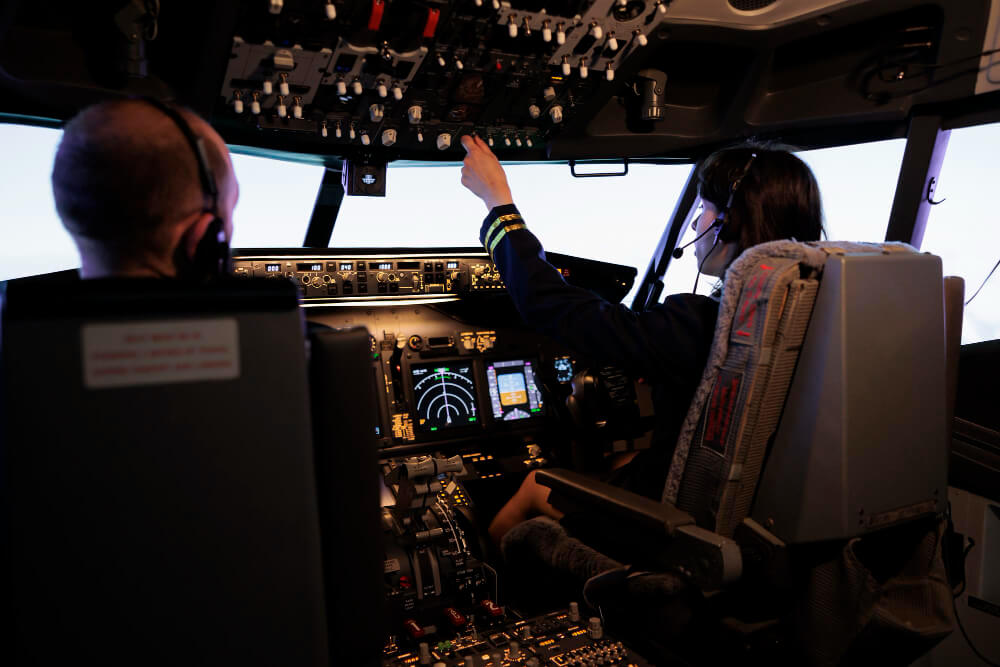Health and optimal physical condition are essential for all professionals in the aviation industry. Did you know that the incidence of common illnesses among pilots is lower than in the general population? All crew members, including pilots, flight attendants, and air traffic controllers, must undergo a mandatory medical examination to obtain or renew their medical certificate, necessary to apply for or renew their aviation license. The safety of passengers largely depends on their work and professionalism, and maintaining good health is crucial to meet these standards.
In this article, we will address the topic of the aeronautical medical certificate, detailing the medical requirements to become a commercial pilot, as well as the physical and psychological assessments that must be successfully completed. Are you about to undergo a medical examination for pilots? Keep reading to discover our best tips for ensuring your evaluation is safe and healthy.
Let’s dive in!
Types of aeronautical medical certificates
In our country, three types of medical certificates are required to obtain the aviation license, which are as follows:
- Aeronautical medical certificate Class 1: This certificate is mandatory for all professional pilots with ATPL and CPL licenses.
- Aeronautical medical certificate Class 2: In this category are private pilots with instrument flight rating, private pilots with night flight rating, as well as ultralight instructors. It also includes drone pilots weighing more than 25 kilograms.
- Class medical certificate 3: This document is required for air traffic controllers. There is also a subcategory 3 AFIS, necessary for air traffic controllers providing AFIS service, although it is less common.
In addition to these certificates, there are also:
- Medical certificate Class CC: Necessary for passenger cabin crew, TCP.
- LAPL medical certificate: Mandatory for pilots of light aircraft such as ultralights, hot air balloons, or gliders. This certificate is also required for drone pilots weighing less than 25 kilograms.
The classification of aeronautical medical certificates is governed by MED.A.030 of Regulation (EU) 1178/2011, for types 1 and 2, and by Regulation (EU) No. 2015/340 in the case of class medical 3.

Validity Period of the Aeronautical Medical Certificate
When it comes to choosing the center to undergo the medical examination, there are differences depending on the type of medical certificate you need.
Commercial and passenger pilots, as well as air traffic controllers, must undergo the initial medical examination at an Official Medical Center recognized by the Civil Aviation Authority. Subsequent revisions can be carried out at accredited medical centers.
On the other hand, those who need a type 2 medical certificate, such as private pilots and passenger cabin crew, can go to authorized and accredited aviation medical examiners.
What are the physical and psychological requirements to obtain the aeronautical medical certificate?
Medical examinations for pilots are rigorous in terms of health and physical condition, which is understandable given the enormous responsibility of operating an aircraft.
However, airlines are not only looking for exceptional individuals; the most important thing is to find balanced people who can work efficiently and safely as a team.
Here are the general requirements you must meet to successfully pass the medical examination and become a pilot:
- General physical and psychological conditions: You must not have any illness, defect, sequelae, or injury that may interfere with the normal performance of your duties, especially in the extremities.
- Visual requirements: A minimum of visual acuity is required for both distant and near vision. Commercial pilots can have a refractive error of up to 3 diopters, correctable with the use of glasses, while for private pilots this value is up to 6 diopters.
- Hearing conditions: The regulations allow for a deficit of up to 20 dB in conversational frequencies and 35 dB in 3000 Hz frequencies.
Although it is important to maintain good health, you should not obsess over these requirements. There is a flexibility clause that allows doctors to assess the ability to work without compromising safety at any time.
Here are seven recommendations that will help you pass a safe and healthy medical examination:
- Prioritize leading a healthy lifestyle.
- When you go to the accredited medical center, consider your personal health more than the aeronautical medical certificate.
- Remember that maintaining good health is crucial to carry out your work as a pilot safely and effectively.
An excellent aircraft pilot not only demonstrates skill in passing the necessary tests to obtain their license. They must also maintain a healthy lifestyle, including a balanced diet, regular exercise, and adequate rest.
These habits, along with adequate mental and social health, are crucial to obtaining and renewing the aeronautical medical certificate, both in the initial examination and in the renewals required by law.
The aeronautical medical certificate goes beyond being a mere requirement; it is a guarantee of health and safety that allows one to practice this exciting profession normally. If you are interested in learning more about the aviation industry, you cannot miss our aviation blog. You will find detailed information and much more.

